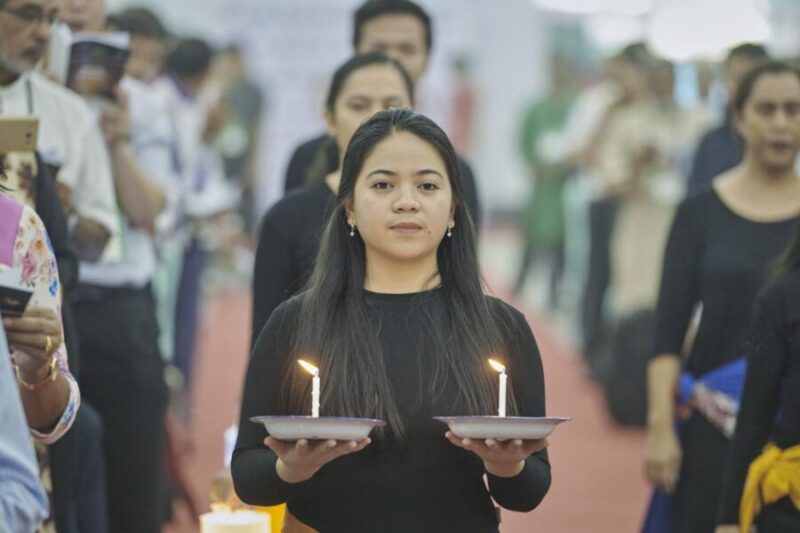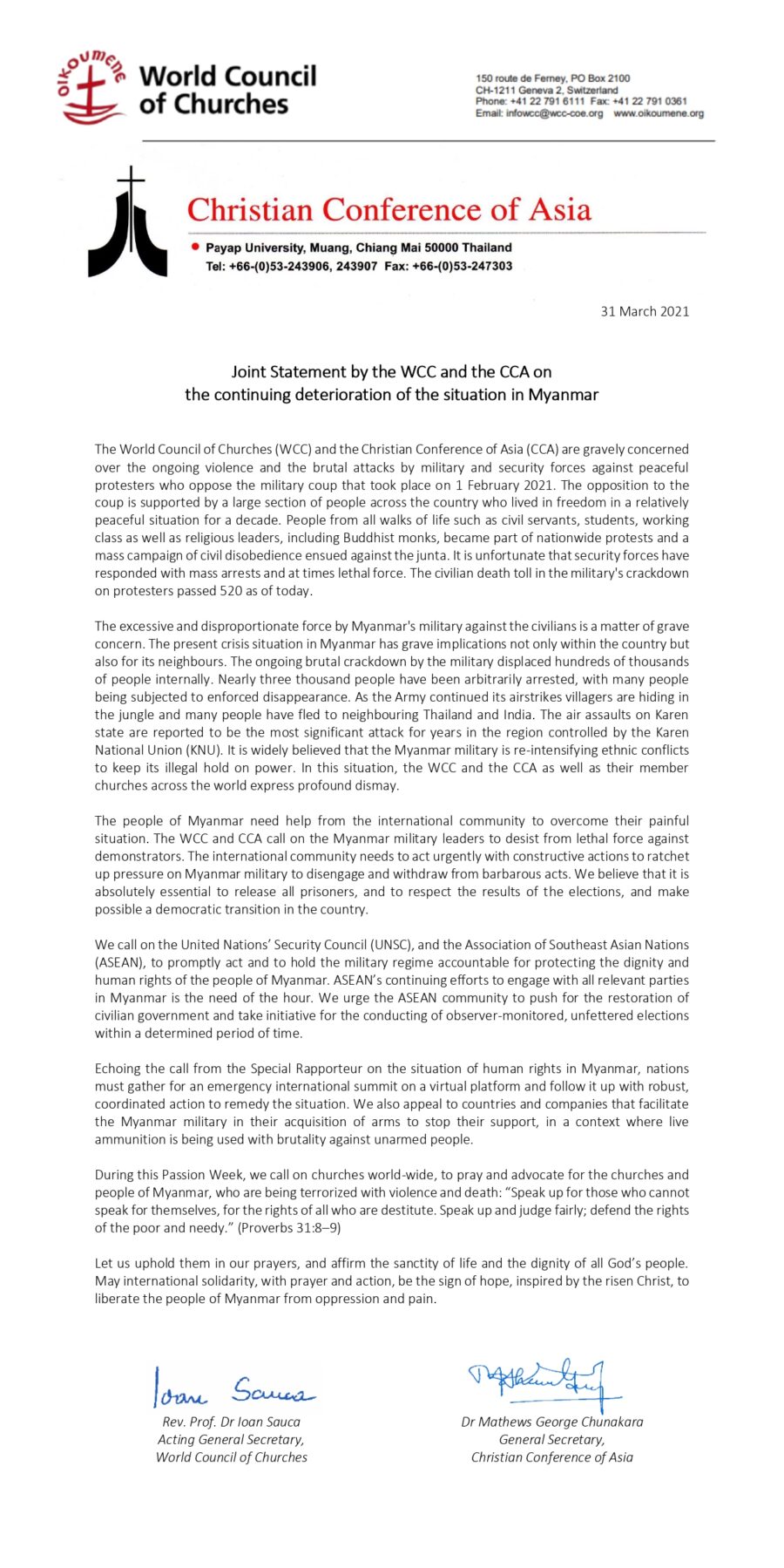General Secretaries of WCC and CCA “affirm the sanctity of life” in Myanmar
 Liturgical dancer carries candles during the opening procession of the Asia Mission Conference in Yangon, Myanmar, October 2017. Photo: Paul Jeffrey/WCC
Liturgical dancer carries candles during the opening procession of the Asia Mission Conference in Yangon, Myanmar, October 2017. Photo: Paul Jeffrey/WCC
In a joint statement on 31 March, the World Council of Churches (WCC) and the Christian Conference of Asia (CCA) expressed profound dismay at the ongoing violence and the brutal attacks by military and security forces against peaceful protesters in Myanmar.
“The opposition to the coup is supported by a large section of people across the country who lived in freedom in a relatively peaceful situation for a decade,” reads the statement. “People from all walks of life such as civil servants, students, working class as well as religious leaders, including Buddhist monks, became part of nationwide protests and a mass campaign of civil disobedience ensued against the junta.”
The appeal calls on the UN Security Council and the Association of Southeast Asian Nations (ASEAN) to promptly act and to hold the military regime accountable for protecting the dignity and human rights of the people of Myanmar.
“The people of Myanmar need help from the international community to overcome their painful situation,” the statement reads. “The international community needs to act urgently with constructive actions to ratchet up pressure on Myanmar military to disengage and withdraw from barbarous acts. We believe that it is absolutely essential to release all prisoners, and to respect the results of the elections, and make possible a democratic transition in the country.”
"May international solidarity, with prayer and action, be the sign of hope, inspired by the risen Christ, to liberate the people of Myanmar from oppression and pain,” concludes the statement.
The full text of the joint statement can be found below:
 Read the WCC-CCA joint pastoral letter to the members churches and council in Myanmar issued on 3 February 2021 here, and the WCC-CCA joint statement on the Myanmar military’s lethal actions issued on 4 March 2021 here.
Read the WCC-CCA joint pastoral letter to the members churches and council in Myanmar issued on 3 February 2021 here, and the WCC-CCA joint statement on the Myanmar military’s lethal actions issued on 4 March 2021 here.










